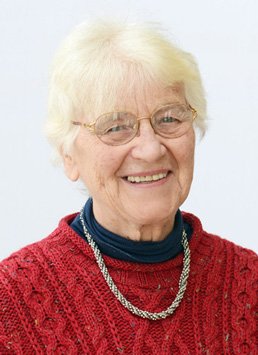Society for the Study of Women Philosophers, Inc.
a non-profit, tax-exempt educational charity 501(c)3 Internal Revenue Code
Cassandra Fedele
1465-1558
Italian Renaissance Feminism, Humanism
|
Kate Lindemann's Women Philosophers pages |
 |
Remember!! Your purchase of books by clicking on Abe Books or Amazon links through this site earns us a small commission that is used to provide travel scholarships. |
Cassandra Fedele Chronology
1465 She was born in Venice, Italy. Her mother was Barbara Leoni and her father Angelo Fedele.
- From her writings we know that her father took an interest in her education.
1477 Cassandra had become fluent in both Greek and Latin. In this year she was sent for tutoring by Gasparino Borro, who was a Servite monk. She studied classical literature, philosophy, sciences and dialectics.
1487 She delivered a graduation speech, Oratio pro Bertucio Lamberto, at the University of Padua that praised the arts and sciences. This speech was immediately published in Modena and eventually in Venice and Nuremberg. For the next 10 years she engaged in letter writing with important thinkers in both Italy and Spain.
1491 Angelo Poliziano (Politian) visited her at her home and later recommended her to Lorenzo de' Medici.
- During this time Isabella di Castiglia invited Cassandra to join her court in Spain but she declined because of the current war between Italy and France. Some claim that this was merely a polite excuse and that chief magistrate (doge) of the republics of Venice and Genoa would not allow her to leave the area.
1497 (possibly as late at 1499) - She married Giammaria Mapelli, a physician. Her marriage appeared to put an end to her participation in intellectual circles. Whether it was the burden of running an entire household or some objection of her husband we do not know. It may also have been due to increasing poor health. Since in 1496 she complained of some illness that was depleting her energies. Some have hypothesized that she saw a contradiction between scholarly pursuits and married life.
1520 She lost all her belongings in a shipwreck. Her husband died. She was now a widow and childless. She had no income or means of support.
1521 She appealed to the Pope Leo X but received no reply.
1547 She again appealed to the Pope, this time Paul III. He replied and gave her a position of a prioress of an orphanage at San Domenico di Castello in Venice. She retained this position and lived in Venice for the rest of her life.
1556 This year marked a return to public life. She was invited by the Doge of Venice to address the Queen of Poland, Bona Sforza, when the queen visited Venice in this year. The address, Pro adventu Sermissimae sarmticase regnaer included a suggestion about how she and other women of her day could benefit from the new humanist learning made available to them, since they were not able to use their knowledge for professional purposes:
"When I meditate on the idea of marching forth in life with the lowly and execrable weapons of the little woman -- the needle and the distaff -- even if the study of literature offers women no rewards or honors, I believe women must nonetheless pursue and embrace such studies alone for the pleasure and enjoyment they contain."
1558 Cassandra Fedele dies.
Information for this Chronology was taken from Encyclopedia of Italian Literary Studies vol. 1 edited by Gaetana Marrone, Paolo Puppa, Luca Somigli and from the excellent web site Italian Women Writers Cassandra Fedele
Bibiliography
Primary sources:
1487 Oratio pro Bertucio Lambertto. See: "Cassandra Fedele: Oration for Bertucio Lamberto, Receiving the Honors of the Liberal Arts." Translated and edited by Margaret L. King and Albert Rabil, Jr. Her Immaculate Hand: Selected Works by and about the Women Humanists of Quattrocento Italy. Binghamton, N.Y.: Medieval and Renaissance Texts and Studies, 1983, 69-73.
1488 De laudibus literarum (in Clarrisimae Feminiae Pro Adventa Ser Epistolae et orationes. Edited by Jacopo Filippo Tomasini. Padua: Franciscus Bolzetta, 1636.
Letters: (a) Alessandra Scala to Cassandra; (b) Cassandra to Alessandra. Translated and edited by Margaret L. King and Albert Rabil, Jr. Her Immaculate Hand: Selected Works by and about the Women Humanists of Quattrocento Italy. Binghamton, N.Y.: Medieval and Renaissance Texts and Studies, 1983, 87-88.
"Cassandra Fedele: Oration in praise of letters." Translated and edited by Margaret L. King and Albert Rabil, Jr. Her Immaculate Hand: Selected Works by and about the Women Humanists of Quattrocento Italy. Binghamton, N.Y.: Medieval and Renaissance Texts and Studies, 1983, 74-77.
"Cassandra Fedele: Oration to the Ruler of Venice, Francesco Venerio, on the arrival of the Queen of Poland." Translated and edited by Margaret L. King and Albert Rabil, Jr. Her Immaculate Hand: Selected Works by and about the Women Humanists of Quattrocento Italy. Binghamton, N.Y.: Medieval and Renaissance Texts and Studies, 1983, 48-50.
Cassandra Fedele: Letters and Orations. Edited and translated by Diana Robin. Chicago: University of Chicago Press, 2000.
Secondary Sources:
Cavazzano, Cesira. Cassandra Fedele: erudita veneziana del Rinascimiento Venezia: Tip. Orfanotrofio di A. Pellizzato, 1907.
Petrettini, Maria. Vita di Cassandra Fedele veneziana. Venezia: Tip. di Giuseppe Grimaldo, 1852.
"Cassandra Fedele's Epistolae (1488-1521): Biography as Effacement." The Rhetorics of Life-Writing in Early Modern Europe: Forms of Biography from Cassandra Fedele to Louis XIV. Edited by Thomas Mayer and Daniel Woolf. Ann Arbor, Mich.: University of Michigan Press, 1995, pp. 187-203.
Schlam, Carl C. "Cassandra Fidelis as a Latin Orator." Acta
Conventus Neo-Latini Sanctandreani: Proceedings of the Fifth
International Congress of Neo-Latin Studies (St. Andrews 24 August to 1
September 1982). Binghamton, N.Y.: Medieval and Renaissance
Texts and Studies, 1986, pp. 185-91.
Page last updated: 10 January, 2015.
Society for the Study of Women Philosophers